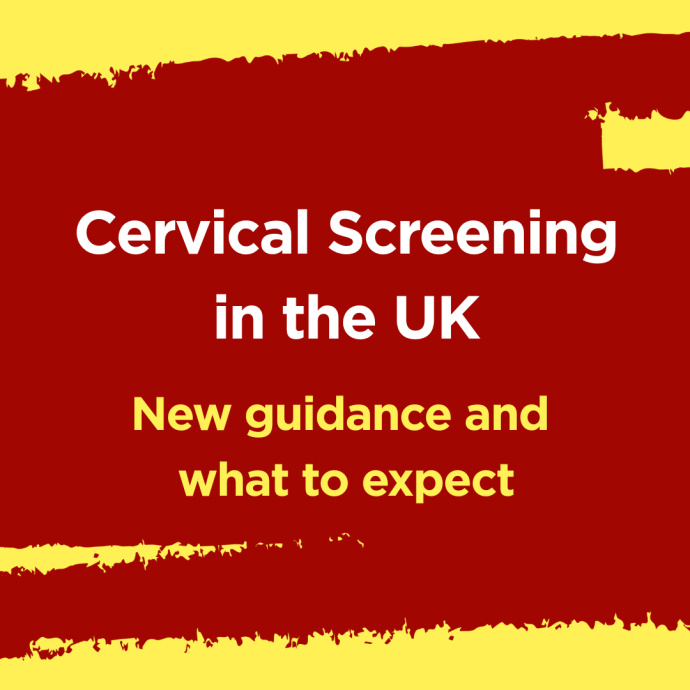What is a cervical screening test, and how does it work?
Cervical screening (sometimes called a smear test or pap test) is a test that helps prevent cervical cancer. It's important to note that it is not a test to diagnose cervical cancer.
During the screening, a doctor or nurse will collect a sample of cells from the cervix. To do this, they will gently insert a lubricated speculum into the vagina. Then, they will use a soft plastic brush to collect the sample. This sample is sent to a laboratory for testing.
In the UK, cervical screening starts at age 25. You’ll receive an invitation letter when you turn 25, which will explain how to book your appointment with your GP. There has been a recent change to the screening programme in England. As of the 1st July 2025 you will be invited to attend routine cervical screening every 5 years, instead of every 3 years. 5 yearly screening will continue up until the age of 64 as long as your previous test was negative to HPV (Human Papillomavirus). Scotland and Wales moved to 5 yearly screening in 2020 and 2022. If you have a higher risk of cervical cancer e.g., due cervical cell changes or tested positive to HPV then you will be invited for screening more often.
The change to the screening programme follows recommendations by the UK National Screening Committee and is backed by clinical evidence. To increase participation, the Department of Health and Social Care (DHSC) are now offering a home self-sampling kit to anyone who hasn't responded to an invitation within six months. The kit uses a vaginal swab to collect a sample, which is then tested in a lab for HPV.
You must be registered with a GP in order to be invited for cervical screening. If you are trans and registered as male with your GP, you may not automatically receive an invitation. However, if you have a cervix, you’re still at risk of cervical cancer. You can call your GP to book a cervical screening appointment.
Quick facts to remember:
- You still need to attend your screening even if you've had the HPV vaccination.
- A previous negative screening result doesn't mean you can skip future screenings.
- You still need to attend even if you’ve never been sexually active.
- You still need to attend even if you're in a same-sex relationship.
- You still need to attend even if you have had endometriosis surgery.
Helpful tips for your appointment:
- While cervical screening can be uncomfortable, it shouldn’t be painful. It is important to note that it can be more uncomfortable for some, in particular for those with endometriosis, but it should not be intolerably painful. If you do experience discomfort, feel free to ask the practitioner to stop or adjust. If pain has stopped you from attending in the past, we would encourage you to speak with your GP about accessing home testing.
- If you’re concerned about discomfort, you can ask the medical professional to use a smaller speculum, as there are different sizes available.
- Consider taking pain relief before your appointment to make the experience more comfortable.
- While plastic speculums are most common, some GP surgeries still use metal ones. If a metal speculum is being used, you can ask the practitioner if they can warm it underwater first – this can make it feel less uncomfortable.
- If you think you might need extra time or you are anxious about feeling rushed, you can request a double appointment when booking your screening.
Need support? Book a call with one of our nurses via our Nurse Helpline today.


